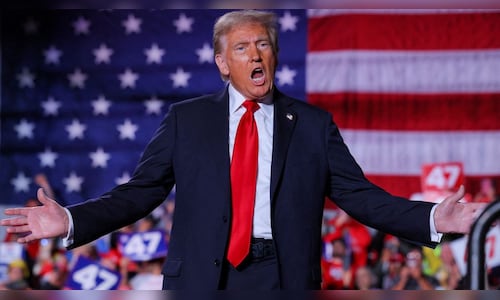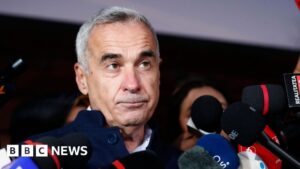
The most closely watched appointment is that of Scott Bessent as Treasury Secretary. Bessent, a Wall Street veteran and a longtime ally of Trump, has worked with George Soros’s investment firm and is regarded as a key insider in financial circles. His nomination was welcomed by financial markets, which experienced a slight rally upon the announcement.
Bessent’s economic views align with Trump’s stance, particularly regarding tariffs. He favours tariffs as a one-time adjustment and is known for his hawkish position on China. His criticism of the Federal Reserve (Fed), including suggestions to establish a “shadow Fed Chair” to challenge current Fed Chairman Jerome Powell, has cemented his reputation as a fiscal hawk. While his criticism of former Treasury Secretary Janet Yellen’s use of T-bills to fund government operations has raised eyebrows, Bessent’s approach is seen as more disciplined than previous administrations, which markets have taken positively.
Trump has also chosen Howard Lutnick as the secretary of commerce. Lutnick is a longtime friend of Trump and the CEO of the financial services firm Cantor Fitzgerald. The Commerce Department, under Lutnick’s leadership, will oversee critical responsibilities, such as setting duties on unfairly priced or subsidised goods and monitoring sensitive technologies. The department’s work will be vital in safeguarding US interests in key sectors, particularly as the US continues navigating trade tensions with adversarial countries, such as China.
Kevin Hassett, who served as Chairman of the Council of Economic Advisers during Trump’s first term, has been appointed to lead the National Economic Council. A staunch advocate for corporate tax cuts, Hassett will significantly shape the administration’s economic policy agenda. His push for tax cuts was a key element of Trump’s first presidency, and he is expected to continue championing pro-business policies. Hassett’s leadership will be crucial in driving policy initiatives within the White House and coordinating economic strategies across various government departments.
Jamieson Greer, appointed as the new United States Trade Representative (USTR), brings significant experience, having served as Chief of Staff to Robert Lighthizer during Trump’s first presidency. Greer is known for his hardline stance on China and has advocated for revoking China’s permanent normal trade relations status. He has also called for imposing higher tariffs on Chinese goods, aligning with Trump’s protectionist policies and his desire to confront China over trade imbalances.
The appointments signal a more aggressive stance on trade and fiscal matters. Three of the four key members—Bessent, Lutnick, and Greer—are seen as “hawks” in their respective fields, particularly regarding tariffs and trade policy. Bessent’s market-friendly background, however, offers a contrasting perspective, as he is viewed as someone who can balance economic growth with protective measures.
With Trump assuming office on January 20, the real test will be how much power these individuals will have in shaping policy. Will they be able to exercise independent decision-making, or must they follow Trump’s vision closely? As the inauguration approaches, the new administration’s economic policies are expected to come into sharper focus, with the possibility of bold actions on tariffs and trade regulation from day one.



